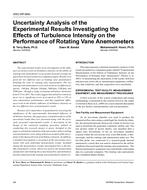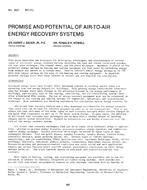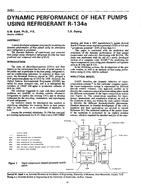Click here to purchase
The vast majority of residential HVAC contractors design and install duct systems using rules of thumb and design guidelines based on obsolete assumptions about house thermal characteristics. Perhaps the most widely accepted rule of thumb is that conditioned air should be delivered at the building perimeter to control the load and achieve acceptable comfort at the windows. The basis for this rule dates back to testing performed in uninsulated houses and laboratory facilities with single-glazed windows. Through computer modeling, field testing, and laboratory testing, initial guidelines have been developed to allow the builder or HVAC contractor to forsake perimeter duct distribution when certain levels of energy efficiency are met, which typically involves better performing windows than are typically selected. The concept of “minimized duct design” (MDD) affords the opportunity to mitigate many of the problems associated with ductwork, including energy waste, poor indoor air quality, and compromised combustion appliance safety, while encouraging the use of higher performance glazing. Analysis shows that in many cases the cost savings in the ductwork will offset the added cost of the window upgrade.
Citation: Symposium, ASHRAE Transactions, vol. 106, pt. 1
Product Details
- Published:
- 2000
- Number of Pages:
- 9
- File Size:
- 1 file , 150 KB
- Product Code(s):
- D-7351


